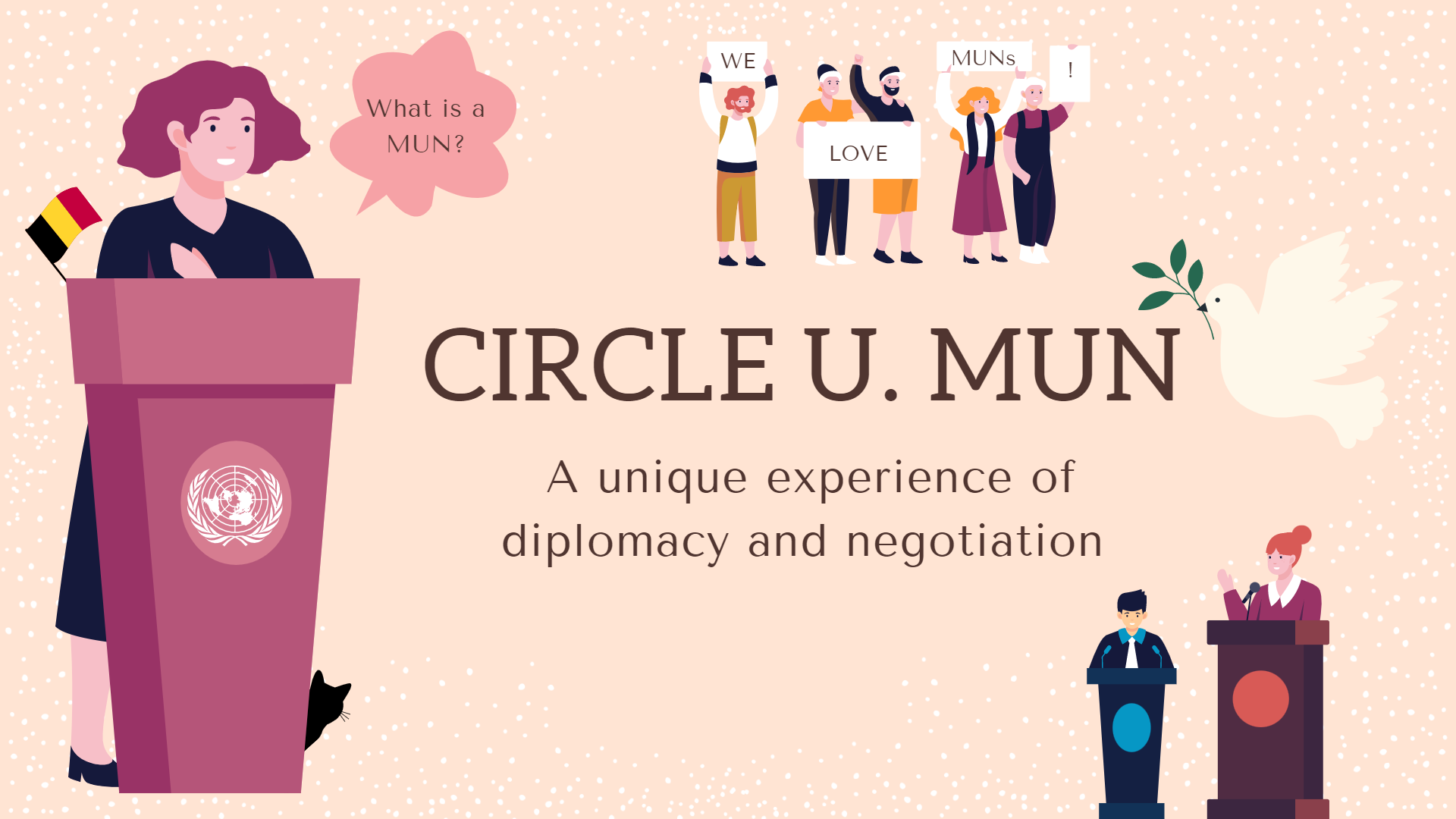This series of podcasts explores the concept of Model United Nations (MUNs) and highlights the skills and benefits gained by participants during this wonderful experience where students get the opportunity to step into the shoes of world leaders and discover concrete diplomatic practices.
The first episode therefore explores the concrete organization of MUNs, where students get to represent UN (member states or observer states) during debates tackling crucial global issues: they have to do extensive research on both the country they represent and the topic that is discussed, then they have to negotiate, collaborate and implement public policy solutions to solve such global challenges. This experience thus fosters multiple benefits through experiential learning: the second episode delves into the opportunities and skills provided by MUNs, including knowledge of international relations, leadership development, teamwork, and cultural exchange. Then, the third episode explores and focuses on a special MUN experiment that took place in March 2023 in Brussels, providing insights into its concrete workings. This series of podcasts therefore emphasizes the importance of supporting MUNs through raising awareness on its benefits, setting up projects like the Circle U MUN initiative, and allocating resources to the development of new MUN editions.
References
Circle U. European University Alliance. (2023, mai). Students making the case for Sustainable Education. Circle U. https://www.circle-u.eu/news/2023/students-making-the-case-for-sustainable-education.html
Engel, S., Pallas, J., & Lambert, S. (2017). Model United Nations and Deep Learning : Theoretical and Professional Learning. Journal of Political Science Education, 13(2), 171‑184.
Hammond, A., & Albert, C. D. (2020). Learning by Experiencing : Improving Student Learning Through a Model United Nations Simulation. Journal of Political Science Education, 16(4), 441‑458.
Hazleton, W. A., & Jacob, J. E. (1983). Simulating International Diplomacy : The National Model United Nations Experience. Teaching Political Science, 10(2), 89‑99.
Jesui̇t, D. K., & Endless, B. (2018). Model United Nations and Experiential Learning : An Assessment of Changes in Knowledge and Attitudes. Journal of Social Studies Education Research, 9(4).
Kartal, M. (2021). Facilitating Deep Learning and Professional Skills Attainment in the Classroom : The Value of a Model United Nations Course. Journal of Political Science Education, 17(sup1), 148‑168.
McIntosh, D. (2001). The Uses and Limits of the Model United Nations in an International Relations Classroom. International Studies Perspectives, 2(3), 269‑280.
Muldoon, J. P. (1995). The Model United Nations Revisited. Simulation & Gaming, 26(1), 27‑35.
Obendorf, S., & Randerson, C. (2012). The Model United Nations simulation and the student as producer agenda. Enhancing Learning in the Social Sciences, 4(3), 1‑15.
Obendorf, S., & Randerson, C. (2013). Evaluating the Model United Nations : Diplomatic Simulation as Assessed Undergraduate Coursework. European Political Science, 12(3), 350‑364.
Phillips, M. J., & Muldoon, J. P. (1996). The Model United Nations : A Strategy for Enhancing Global Business Education. Journal of Education for Business, 71(3), 142‑146.
